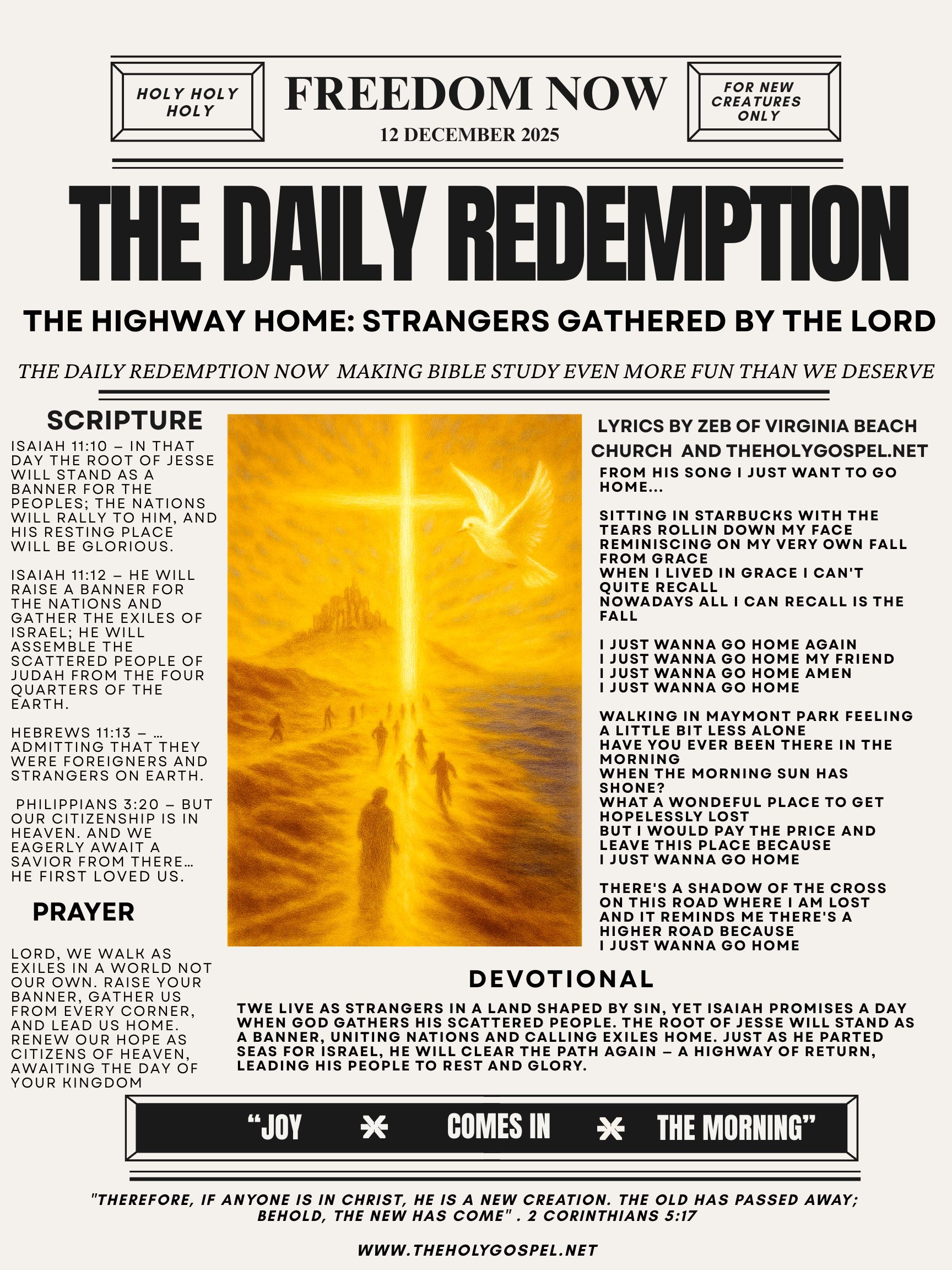Isaiah 32 presents a profound vision of a righteous king who brings blessings and justice, resonating deeply with the prophetic expectations of the Jewish people. This vision aligns with the Messianic hope embedded in the cultural and religious consciousness of the ancient Israelites, as they eagerly awaited the arrival of a leader who would establish righteousness and equity in the land. The portrayal of a righteous king in Isaiah 32 offers prophetic insights into Jesus as the Messiah, as Christians believe that Jesus perfectly embodies the qualities of the anticipated leader, bringing blessings and justice to the world. The significance of repentance and mourning in preparing for the coming of the Spirit underscores the spiritual preparedness required for the Messianic promise, emphasizing the transformative power of the Spirit in bringing life, fruitfulness, justice, righteousness, peace, and assurance to humanity.
For instance, the righteous king’s reign mentioned in Isaiah 32 can be linked to Jesus’ role as the promised Messiah, bringing blessings, justice, and peace to humanity [3, 4]. Furthermore, the emphasis on repentance and mourning in preparing for the coming of the Spirit in Isaiah 32 signifies the Messianic promise as it points to the spiritual renewal and transformation brought about by the arrival of Jesus. Christians view this as a prophetic insight into Jesus’ redemptive work, as his birth and ministry inaugurated a new era of spiritual blessing and restoration. This alignment of the prophetic vision with the Christian understanding of Jesus as the Messiah showcases the profound theological implications of Isaiah 32 in illuminating the nature of the Messianic promise and the Gospel fulfillment.
In exploring the historical and theological evidence, it becomes evident that Isaiah 32 plays a significant role in understanding Jesus as the Messiah and his fulfillment of the prophecies. The Gospels’ accounts of Jesus’ life, including his birth in Bethlehem, miracles, death, and resurrection, are often paralleled with the prophecies found in Isaiah 32, strengthening the view of Gospel fulfillment. This alignment between Isaiah’s prophecies and the events of Jesus’ life in the Gospels provides a compelling narrative that reinforces the belief in Jesus as the fulfillment of Old Testament predictions [1, 4]. Therefore, Isaiah 32 not only serves as a source of prophetic insights into Jesus but also serves to substantiate the Gospel fulfillment in Christian theology.
Prophetic Insights into Jesus in Isaiah 32
Isaiah 32 unveils prophetic insights into Jesus, the long-awaited Messiah, through its portrayal of a righteous king. This prophetic vision of a righteous king’s reign, bringing blessings and justice, points to the Messianic promise fulfilled in Jesus Christ. The attributes of justice, righteousness, peace, and assurance resulting from the outpouring of the Spirit from on high in Isaiah 32 resonate with the life and teachings of Jesus, reinforcing the prophetic nature of this vision.
One specific instance of the prophetic insights into Jesus in Isaiah 32 can be found in the portrayal of the outpouring of the Spirit from on high. This outpouring, described in Isaiah 32, aligns with the Gospel accounts of Jesus’ baptism, where the Holy Spirit descended on Him like a dove, marking the beginning of His public ministry. This prophetic connection between Isaiah 32 and Jesus’ life emphasizes the Messianic significance of the chapter, contributing to a deeper understanding of Jesus as the fulfillment of Old Testament prophecies.
Furthermore, the righteous king’s reign and the attributes associated with this reign, such as justice and peace, provide prophetic insights into Jesus as the Messiah. The New Testament accounts of Jesus’ teachings and His role as the Prince of Peace resonate with the Messianic promises outlined in Isaiah 32, reinforcing the prophetic connections between the Old Testament prophecy and the fulfillment in Jesus Christ. This alignment underscores the continuity between the Old Testament prophetic expectations and the Gospel accounts of Jesus’ life, birth, and death, offering compelling insights into Jesus as the long-awaited Messiah.
The portrayal of a righteous king in Isaiah 32 offers prophetic insights into Jesus as the Messiah, as Christians believe that Jesus perfectly embodies the qualities of the anticipated leader, bringing blessings and justice to the world. The significance of repentance and mourning in preparing for the coming of the Spirit underscores the spiritual preparedness required for the Messianic promise, emphasizing the transformative power of the Spirit in bringing life, fruitfulness, justice, righteousness, peace, and assurance to humanity.
#Isaiah32 #MessianicPromise #JesusFulfillment #GospelNarrative #SymbolicImagery #PropheticVision #DivineRevelation #RedemptioninIsaiah #MessianicHope #GospelFulfillment #PropheticInsights #ChristinProphecy #ScripturalInterpretation #IsaiahsVisions #BiblicalProphecy #SalvationPromise #MessianicEra #JusticeandRighteousness #KingdomofGod
Unveiling the Messianic Promise in Isaiah 32
Isaiah 32 presents a profound Messianic promise that Christians recognize as a pivotal aspect of the chapter’s prophetic insights. One of the key passages in this regard is Isaiah 32:1, where it speaks of a righteous king who will reign with justice, a powerful foreshadowing of Jesus as the Messiah. The portrayal of a righteous king aligns with the Messianic promise, indicating that Jesus fulfills the role of this promised leader who brings blessings and justice to the people.
Furthermore, the emphasis on repentance and mourning in preparing for the coming of the Spirit in Isaiah 32 signifies the Messianic promise as it points to the spiritual renewal and transformation brought about by the arrival of Jesus. Christians view this as a prophetic insight into Jesus’ redemptive work, as his birth and ministry inaugurated a new era of spiritual blessing and restoration. The Messianic promise in Isaiah 32 is therefore intricately linked to the fulfillment found in the life, death, and resurrection of Jesus, reflecting the theological significance of this prophetic vision in understanding Jesus as the Messiah.
The Messianic promise in Isaiah 32 is intricately linked to the fulfillment found in the life, death, and resurrection of Jesus, reflecting the theological significance of this prophetic vision in understanding Jesus as the Messiah. This alignment of the prophetic vision with the Christian understanding of Jesus as the Messiah showcases the profound theological implications of Isaiah 32 in illuminating the nature of the Messianic promise and the Gospel fulfillment.
Gospel Fulfillment: Isaiah 32 and Jesus
Isaiah 32 not only provides prophetic insights into Jesus’ life, birth, and death, but it also offers a profound connection to the Gospel fulfillment [1, 4]. For instance, the righteous king’s reign mentioned in Isaiah 32 can be linked to Jesus’ role as the promised Messiah, bringing blessings, justice, and peace to humanity [3, 4]. Furthermore, the Gospels’ accounts of Jesus’ life, including his birth in Bethlehem, miracles, death, and resurrection, are often paralleled with the prophecies found in Isaiah 32, strengthening the view of Gospel fulfillment. This alignment between Isaiah’s prophecies and the events of Jesus’ life in the Gospels provides a compelling narrative that reinforces the belief in Jesus as the fulfillment of Old Testament predictions [1, 4]. Therefore, Isaiah 32 not only serves as a source of prophetic insights into Jesus but also serves to substantiate the Gospel fulfillment in Christian theology.
Exploring the historical and theological evidence reveals that Isaiah 32 plays a crucial role in understanding Jesus as the Messiah and his fulfillment of the prophecies. The Gospels’ accounts of Jesus’ life, including his birth in Bethlehem, miracles, death, and resurrection, are often paralleled with the prophecies found in Isaiah 32, strengthening the view of Gospel fulfillment. This alignment between Isaiah’s prophecies and the events of Jesus’ life in the Gospels provides a compelling narrative that reinforces the belief in Jesus as the fulfillment of Old Testament predictions [1, 4]. Therefore, Isaiah 32 not only serves as a source of prophetic insights into Jesus but also serves to substantiate the Gospel fulfillment in Christian theology.
Critiques and Interpretations of Isaiah 32
Historical and theological debates surrounding the interpretation of messianic prophecies in Isaiah 32 continue to provoke critical analysis and diverse interpretations [1, 4]. For example, Isaiah 32:1 states, “See, a king will reign in righteousness and rulers will rule with justice.” This verse has been interpreted as a messianic prophecy by Christians, pointing to Jesus as the righteous king who brought justice and righteousness to the world during his ministry [3, 4].
Furthermore, the critique of alleged messianic prophecies in Isaiah 32 involves a meticulous examination of the historical and theological evidence supporting the connection between Isaiah’s prophecies and Jesus as the Messiah. For instance, Isaiah’s prophecy about the outpouring of the Spirit from on high, bringing life, fruitfulness, justice, righteousness, peace, and assurance, has been linked to Jesus’ fulfillment of these aspects in his teachings and actions [3, 4]. These interpretations are central to the ongoing debates and have significant implications for understanding the prophetic insights of Isaiah 32 in relation to Jesus and the Messianic promise.
Historical and theological debates surrounding the interpretation of messianic prophecies in Isaiah 32 continue to provoke critical analysis and diverse interpretations [1, 4]. Scholars and theologians have engaged in extensive discussions regarding the specific passages in Isaiah 32 that are considered messianic prophecies by Christians. For example, Isaiah 32:1 states, “See, a king will reign in righteousness and rulers will rule with justice.” This verse has been interpreted as a messianic prophecy by Christians, pointing to Jesus as the righteous king who brought justice and righteousness to the world during his ministry [3, 4].
Influence of Isaiah 32 on Christian Beliefs
The prophecies in Isaiah 32 have significantly influenced Christian beliefs about Jesus as the Messiah. One of the key ways in which Isaiah 32 has impacted Christian belief is through the portrayal of a righteous king who brings blessings and justice to the people. This vision of a righteous ruler is closely associated with the Messianic promise, as Christians interpret this figure as a foreshadowing of Jesus Christ, who is seen as the ultimate fulfillment of this prophecy. The depiction of the righteous king in Isaiah 32 aligns with the Gospel accounts of Jesus’ teachings and his mission to bring about justice and righteousness in the world. This alignment reinforces the belief among Christians that Jesus is the long-awaited Messiah, as foretold in the Old Testament.
Moreover, the outpouring of the Spirit from on high, as described in Isaiah 32, is another aspect that has profoundly influenced Christian beliefs about Jesus. The promise of the Spirit bringing life, fruitfulness, justice, righteousness, peace, and assurance resonates with the Christian understanding of Jesus as the embodiment of these spiritual blessings. Christians see the fulfillment of this promise in the life and ministry of Jesus, who brought spiritual renewal and transformation to those who believed in him. This connection between the outpouring of the Spirit in Isaiah 32 and the impact of Jesus’ ministry underscores the significance of Isaiah’s prophecies in shaping the Christian understanding of Jesus as the Messiah.
Challenges and Controversies in Interpreting Isaiah 32
The challenges posed by historical and theological discrepancies in interpreting Isaiah 32 as messianic prophecies continue to spark controversies and debates [1, 4]. Addressing these challenges is crucial in understanding the multifaceted nature of Isaiah 32 and its implications for the belief in Jesus as the Messiah. Recap of the significance of Isaiah 32 in providing prophetic insights into Jesus, the Messianic promise, and Gospel fulfillment. Call to further explore the theological and historical implications of Isaiah 32 in understanding Jesus as the Messiah.


